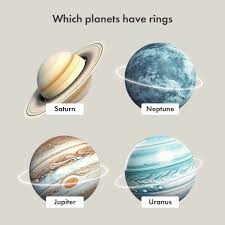Stamp: Millenium, 80th anniv, of discovery of planet Pluto (Saint Vincent and The Grenadines 1999)
Millenium, 80th anniv, of discovery of planet Pluto (Saint Vincent and The Grenadines 1999)
07 December (Saint Vincent and The Grenadines ) within release Millennium goes into circulation Stamp Millenium, 80th anniv, of discovery of planet Pluto face value 60 East Caribbean cent
| Stamp Millenium, 80th anniv, of discovery of planet Pluto in catalogues | |
|---|---|
| Stamp Number: | Sn: VC 2741c |
| Stanley Gibbons: | Sg: VC 4411 |
Stamp is square format.
Stamp Millenium, 80th anniv, of discovery of planet Pluto it reflects the thematic directions:
Famous People refers to the fame and public attention accorded by the mass media to individuals or groups or, occasionally, animals, but is usually applied to the persons or groups of people (celebrity couples, families, etc.) themselves who receive such a status of fame and attention. Celebrity status is often associated with wealth (commonly referred to as fame and fortune), while fame often provides opportunities to make money.
A millennium (pl. millennia or millenniums) is a period of one thousand years, sometimes called a kiloannum (ka), or kiloyear (ky). Normally, the word is used specifically for periods of a thousand years that begin at the starting point (initial reference point) of the calendar in consideration and at later years that are whole number multiples of a thousand years after the start point. The term can also refer to an interval of time beginning on any date. Millennia sometimes have religious or theological implications (see millenarianism).
Outer space (or simply space) is the expanse that exists beyond Earth's atmosphere and between celestial bodies. It contains ultra-low levels of particle densities, constituting a near-perfect vacuum of predominantly hydrogen and helium plasma, permeated by electromagnetic radiation, cosmic rays, neutrinos, magnetic fields and dust. The baseline temperature of outer space, as set by the background radiation from the Big Bang, is 2.7 kelvins (−270 °C; −455 °F)
A planet is a large, rounded astronomical body that is generally required to be in orbit around a star, stellar remnant, or brown dwarf, and is not one itself. The Solar System has eight planets by the most restrictive definition of the term: the terrestrial planets Mercury, Venus, Earth, and Mars, and the giant planets Jupiter, Saturn, Uranus, and Neptune. The best available theory of planet formation is the nebular hypothesis, which posits that an interstellar cloud collapses out of a nebula to create a young protostar orbited by a protoplanetary disk. Planets grow in this disk by the gradual accumulation of material driven by gravity, a process called accretion.




